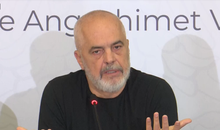
 Flash News
Flash News
Rama's ultimatum: On Monday, all heads of administrative units must be dismissed
Fires in the country, 4 fires still active, what is the situation?
Rama targets Shkodra prosecutor again: Gjeli wrote philosophical essay with innocence of illegal construction
Wanted for theft, 26-year-old arrested in Durrës
Released on bail, Salianji appears before the Probation Service

Alfred Lela
Albin Kurti is being billed for a crisis he would like to solve - rightly or wrongly - by consuming it to its entire extent, but he did not produce it himself. His insistence on melting the frozen conflict of the north of Kosovo seems brave to some and foolish to others.
Brave and foolish he may be, but Kurti is not given credit for another dimension, the wisdom to produce, with both bravery and foolishness, an unlocking result for his country.
The roots of the crisis are deep, but the permission to create Serbian enclaves in the north of Kosovo, despite the country's constitutional principle and strict international monitoring of the qualities of a multi-ethnic republic, has provided a fuse to the conflicting future. The roots lie in what, over the last few years, can be considered an appeasement policy towards an increasingly cynical Belgrade from a double-speaking West regarding the Russian threat and its Balkan variables.
In this sense, the impression that arises when observing the West's bizarre relationship with Serbia is Yugonostalgia. Serbia has contoured the political idiom of a mini-Yugoslavia, whose open non-engagement with the adversary is enough to be treated as an ally. The language of American conservatives, "either with us or against us," has been silenced by the idiom of the new leftist cancel culture, which seeks to push the world and history forward on one condition: not looking back!
The license for this golden mean has reproduced a cynical Serbia led by Aleksandër Vucic, the former minister of Slobodan Milosevic. He is not entirely anti-Western, just as he is not wholly pan-Russian, but what he is undoubtedly is already known: a harvester of the grapes of Western insecurity that, squeezed, produces for Serbia a brandy that warms the breast of permanent Serbian nationalism.
What Albin Kurti does wrong is not stubbornness, but softness, falling in front of the illusion of international support for the introduction of the Republic of Kosovo into the Serbian enclaves in the north, at first using the soft power of the elections, and then by the hard power of the police force. Prime Minister Kurti was wrong when he let his political self be pushed by a YES of the internationals, who have the luxury of analyzing an event after it has happened. That "Yes" for the elections in some municipalities, where about 2-4 percent of the electorate participated, has turned into "No" or its variant (you can do the elections, but not exercise their verdict).
Kurti, maybe sovereign with Kosovo's constitution and international conventions, but he is not legitimate and coherent. The Kosovar Prime Minister has called Secretary Blinken 'naive.' Still, he showed naivety when he accepted the later support to operationalize the frozen institutions of the north through a pair of elections, which have ballot boxes, but do not produce solutions.
Not calculating the Serbian readiness to produce violence and the antidote to any solution that comes from Pristina and not from Belgrade does not suit a politician who has passed from the violence of Serbia's prisons to the catacombs of the politics of the newest Republic in the world.
Even though the international officials use dual language, which blames the perpetrator of violence and the sufferers at the same time, even though Kurti has taken advantage of that incomplete path of what can be called international goodwill, he must understand that, for the sake of Kosovo, it is better to wait with the Americans over the Ibri bridge, than to cross the bridge without them and enter a territory, which since 1389 exudes insecurity and anti-Albanian anxiety.
Kosovo owes to the Americans not only when they are correct but also when they are wrong.
After knowing this, the rush here in Tirana to treat Albin Kurti as anti-American is a political and national disgrace. It is not an attitude nor a realistic geopolitical reading, but revenge by other means for a prime minister, who has harnassed the integrity of a head of state that in Tirana has been lost for in the confusion of bets with the delusion of grandeur.
Projecting a sovereignist Kurti and experiencing this as the betrayal of Euro-Atlanticism, from almost the same seed that comes from the old branch of those who swore about the Warsaw Treaty and isolation in all the languages of the Communist East, is a curse we must endure.
The independence of Pristina, both from Tirana and even more extraordinary powers, proves that Kosova is looking towards the West.
Because, dear friends and enemies, ladies and gentlemen, there is nothing more Western than the courage to say "No" and the right to understand that submission to the threat of violence is its legitimation.
Latest news


Fires in the country, 4 fires still active, what is the situation?
2025-07-11 10:56:23
Government irony: Rama strips Dredha of power, then demands law and order
2025-07-11 10:49:10
German media: Vlora Airport 'kills' one of Europe's largest wetlands!
2025-07-11 10:37:46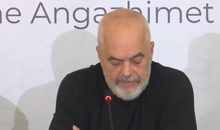

Amid the Alps in Theth, the law punishes even those who try to respect it
2025-07-11 10:14:16
Wanted for theft, 26-year-old arrested in Durrës
2025-07-11 10:03:29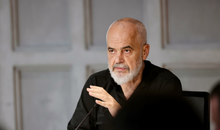
After the dismissals, Rama gathers the mayors in Durrës
2025-07-11 09:42:29
Released on bail, Salianji appears before the Probation Service
2025-07-11 09:34:28

Haxhi Qamil Rama and the directors of the Municipalities!
2025-07-11 09:21:35
30 years since the Srebrenica massacre in Bosnia and Herzegovina
2025-07-11 09:10:52

From rhetoric to brandy, POLITICO: 9 things Nigel Farage can do in Albania
2025-07-11 08:53:35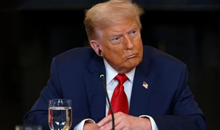
Trump announces 35% tariffs on Canadian goods
2025-07-11 08:39:29
Foreign exchange, how much foreign currencies are sold and bought today
2025-07-11 08:24:25

Horoscope, what do the stars have in store for you today?
2025-07-11 07:59:39
Sun and high temperatures, weather forecast
2025-07-11 07:41:09
Morning Post/ In 2 lines: What mattered yesterday in Albania
2025-07-11 07:20:14
Zhupa: In Theth, some Austrian strategic investors want the empty area
2025-07-10 22:57:08
Malltezi: SPAK admits, we are in a process that began with Balla's false report
2025-07-10 22:34:16

Si të çliroheni nga bllokimet emocionale me anë të ushtrimeve
2025-07-10 21:57:24

Lala: Veliaj wanted to return as mayor
2025-07-10 21:40:46

VIDEO/ Brawl in Bolivian parliament, deputies physically clash
2025-07-10 21:20:30


Albania experienced one of the longest heat waves of the last decade
2025-07-10 21:01:09

The Government approves new procedures for declaring residence in e-Albania
2025-07-10 20:39:32

Koka: Northerners will not forget Edi Rama's racist operation in Theth
2025-07-10 20:18:24
The 3 zodiac signs that will be most affected by the 'Full Moon' of July 10
2025-07-10 20:04:49
New director of the National Center of Cinematography appointed
2025-07-10 19:51:12
Korça/ 40-year-old man jumps from fifth floor balcony, in critical condition
2025-07-10 19:40:19
'Tired Woman'/ The Syndrome That Affects Thousands of Women Every Day
2025-07-10 19:34:02
Jane Birkin's original Hermès bag sells for $10 million
2025-07-10 19:26:22

Britain-Ukraine agreement signed for 5,000 Thales missiles
2025-07-10 19:00:25
Fire in Zvërnec, flames endanger two hotels
2025-07-10 18:57:19
Croatia restores compulsory military service
2025-07-10 18:39:01
Spahia: The great truth of the strong accusation of the residents of Theth
2025-07-10 18:35:07


The Supreme Court left him in prison, Meta addresses the 'Constitution'
2025-07-10 17:57:21
New punishment with 'new' regulations
2025-07-10 17:54:46
EU translator fired over fears for Zelenskyy's safety
2025-07-10 17:45:37
'You are a policeman, but not God, take my soul', protest for Agon Zejnullahu
2025-07-10 17:41:21


Video/ Rama repeats the scenario, kneels before Meloni again
2025-07-10 16:56:31
He set fire to a plot of olive trees, 50-year-old man arrested in Shijak
2025-07-10 16:46:19

Rubio: US and Russia have exchanged new ideas for Ukraine peace talks
2025-07-10 16:36:20
Death of 27-year-old, Lipjan Police Commander Resigns
2025-07-10 16:21:28
Video/ An apartment burns in Tirana near the New Bazaar
2025-07-10 16:09:36


Jensila lights up the internet with her birthday greetings to Ledri
2025-07-10 15:42:08
They're full of pesticides! List of 12 products we need to be careful of
2025-07-10 15:31:04

Worker falls from scaffolding in Shëngjin, urgently sent to Trauma
2025-07-10 15:11:03
Malltezi: Within one day they seized my accounts, properties and shares
2025-07-10 15:01:23
EU: Israel has agreed to more aid to Gaza
2025-07-10 14:55:19
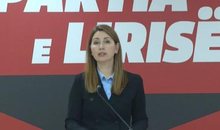

Murder of Reni Dobra, 23-year-old's vehicle pulled from the water
2025-07-10 14:29:23
Trump's tariffs on Brazil raise coffee prices
2025-07-10 14:16:07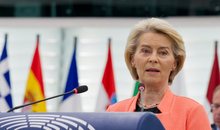
Ursula von der Leyen survives no-confidence vote
2025-07-10 14:04:27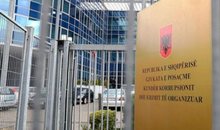


Fire in Lezha, flames near electrical substation
2025-07-10 13:32:24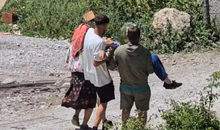
Residents clash with police in Theth, a woman faints
2025-07-10 13:24:38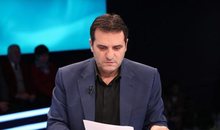
"Rama and Xanun"
2025-07-10 13:15:46

Zodiac signs most likely to get divorced in July 2025
2025-07-10 12:45:51
A scapegoat for an illegitimate Republic
2025-07-10 12:35:02
"He has devastated his own nation"/ Berisha: Rama imprisons his opponents!
2025-07-10 12:26:54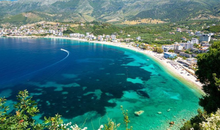

Albanian man injured with knife in Italy
2025-07-10 12:08:55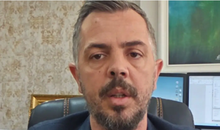
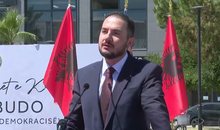





23-year-old in Mat drowned with rope, 4 suspects are being held
2025-07-10 10:58:53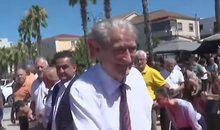
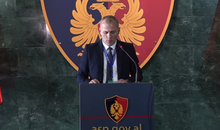
After the dismissals, the new director of the Shkodra Police is appointed
2025-07-10 10:30:10
BIRN: Rama's action for public spaces, a repeated spectacle
2025-07-10 10:29:11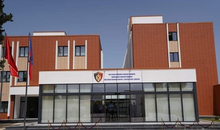
Action in Theth, Shkodra Police leaders dismissed
2025-07-10 10:16:28
Fatal accident on the Tirana-Durres highway
2025-07-10 10:01:58
The incinerator does not exist, but the government continues to increase funds
2025-07-10 09:51:45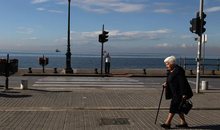
Albania is aging at a rapid pace! 30% of the population is over 60 years old
2025-07-10 09:46:23
End of an era, Modric says 'goodbye' to Real Madrid
2025-07-10 09:36:09
Mount Dukat has been on fire for 6 days, residents request air intervention
2025-07-10 09:27:24
